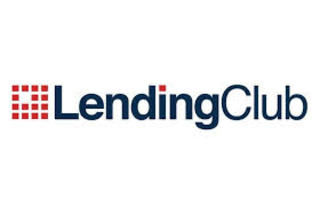6 Best Emergency Loans
Emergency loans can be helpful when you need to make a large unexpected purchase or have an unforeseen expense. It’s vital to do your research before accepting a loan because many emergency loans can do more harm than good.
To help you make the best choice for your finances, review and consider the top picks for the best emergency loans below. You can also learn more about how to get a loan and choose the best one for your needs.
Our Top Picks for Best Emergency Loans
The top picks for the best emergency loans include:
- LendingClub: Best for smaller loans
- Marcus: Best for credit score protection
- Upgrade: Best for online services
- Avant: Best for bad credit
- Lightstream: Best for unsecured personal loans
- Rocket Loans: Best for availability
Best Emergency Loans Reviews
You may find yourself in a situation where a loan will come in handy to cover emergency expenses. Be ready for those times by learning which type of loan may be best to suit your needs.
Why we chose it: LendingClub has become a favored institution for individuals looking for emergency personal loans. While it offers relatively large loan amounts, high annual percentage rates (APRs) make it best for small emergency loans.
- Many borrowers receive funds within 24 hours
- Long loan terms without prepayment penalties
- Accepts applicants with moderate-to-low credit scores
- Higher APRs than other companies
- Various fees may add up quickly
LendingClub provides emergency loans between $1,000 and $40,000. Repayment terms range between 36 and 60 months, and you may be able to extend your repayment term for smaller individual payments. On the other hand, there are no prepayment penalties if you want to pay off your loan faster.
Emergency loans from LendingClub are unsecured. However, there is an origination fee — a fee charged to process the application — between 3% and 6% for personal loans. LendingClub’s APRs are also typically higher than other companies, further increasing costs.
While LendingClub claims that over one-third of borrowers receive their funds within 24 hours of applying, this might vary if additional documentation or other records are required to process your application.
LendingClub Requirements
LendingClub applicants must be at least 18 years old and living legally in the U.S. However, LendingClub loans are not available in Iowa or the U.S. territories. You must have a credit score of at least 600 to qualify for a LendingClub personal loan. LendingClub will also check your debt-to-income ratio and require proof of income. The average LendingClub borrower has a credit score of 700 and a debt-to-income ratio of 12%.
How to apply for a LendingClub loan
To apply for a LendingClub emergency loan, you need to fill out a quick application online that asks for the loan amount, the reason for borrowing, personal information and proof of income. This application will trigger a soft credit check, after which you can view your loan offers. When you choose an offer, LendingClub will conduct a hard credit check, and then you can get funded after your application is approved.
Why we chose it: Marcus by Goldman Sachs provides personal loans with no fees and customizable repayment terms that make borrowing flexible and affordable.
- No fees
- Direct payment to consolidate debt
- APR discount for autopay
- Slower funding times
- No option for co-signing or joint applications
Marcus’ loans range between $3,500 and $40,000, with loan terms between 36 and 72 months. Marcus has no fees and offers several ways for customers to save. For example, you can skip one monthly payment without accruing interest if you make on-time payments for 12 consecutive months. In addition, you can save 0.25% on your APR if you sign up for autopay. All of these opportunities for flexibility help you make your payments in a way that works for you, decreasing your risk of missing payments and seeing your credit report penalized.
It can take a few days to receive funds from your Marcus personal loan, so this might not be the best option for emergency same-day loans. However, if you’re using the loan for debt consolidation, you can use Marcus’ direct payment feature to pay off your debt faster.
Personal loans from Marcus are available to U.S. residents over 18 in most areas, but higher age requirements may apply in others. Marcus doesn’t confirm minimum credit score requirements for its loans, but it does reference a credit score of 660 on its website. You’ll need a social security or tax ID number and proof of income.
You can pre-qualify for a Marcus personal loan by providing your personal information, loan amount, the reason for borrowing and income. Marcus will do a soft credit check, and then you can choose a loan offer and provide the documentation needed to process your application, followed by a hard credit pull. If approved, you’ll typically receive your funds within three days.
Why we chose it: Upgrade offers personal loans for people with mid-level credit scores. Upgrade loans are managed online with the company’s easy-to-use platform. Upgrade offers other financial products online to allow borrowers to keep their money with one institution.
- No prepayment fees
- Longer loan terms available
- Other financial products available in one online platform
- Other fees that can add up
- Slightly higher APRs
Upgrade’s offers credit card refinance, debt consolidation, home improvement and large purchase loans for amounts between $1,000 and $50,000. Upgrade offers longer loan terms ranging between two and seven years, which gives borrowers more time to pay off their debt. And, if you want to pay it off quicker, there are no prepayment fees.
Upgrade does have some higher APRs and fees than some of its competitors. While there’s a 15-day grace period for missed payments, if you go over that, there’s a $10 late payment fee. In addition, Upgrade charges a non-refundable $10 fee if insufficient funds prevent one of your payments from processing. If you use a vehicle to secure your loan, you may need to pay a title transfer fee imposed by your state’s Department of Motor Vehicles.
It may take one or two days to process your application. Then, most borrowers receive their funds within 24 hours of being approved, but in total that adds up to as many as four days to receive your loan funds. If you have Upgrade pay your creditors directly, it can take up to two weeks for the funds to clear.
Upgrade doesn’t confirm their eligibility requirements. However, this is likely because Upgrade provides loans through bank partners, so eligibility hinges on the bank’s requirements. Some partners may be able to arrange emergency loans for bad credit scores as low as 550.
Upgrade’s loan application process is similar to other institutions. The company will run a soft credit check based on your basic information, and then you’ll need to provide documentation after you choose a loan offer that works for you.
Why we chose it: Avant has more lenient credit requirements, so they may be able to provide emergency loans for individuals with bad credit.
- Loan ranges and terms that may be suitable for emergency loans for bad credit
- Low fees
- Fast funding times
- Slightly higher APRs
- No options for co-signing or joint applications
Avant’s loan amounts are between $2,000 and $35,000, a lower upper range than others in the industry. In addition, it has shorter terms that are as low as 12 months and as high as 60 months. According to some reviews, the combination of low amounts and short terms may favor people with lower credit scores, perhaps around 580. However, the average Avant borrower has a credit score between 600 and 700.
Avant’s APRs are slightly higher than other lenders on our list, and there may be an origination fee of up to 4.75%. In addition, Avant charges a $25 late payment fee and a $15 returned check fee.
Since Avant refers to its loans online as emergency loans, it has relatively fast processing times. You could receive your funds as soon as the next day if your application approval is completed by 4:30pm CT during the week.
Applicants must be at least 18 years old. Avant doesn’t specify credit requirements but reports that people with low credit have a chance at approval as long as they have proof of income and an acceptable debt-to-income ratio. Avant loans aren’t available in the following states: Hawaii, Iowa, New York, Vermont and West Virginia.
Avant uses standard loan applications and processes. Borrowers can pre-qualify with a soft credit check and then view loan offers. After selecting a loan offer, you can complete a full loan application and provide verification information.
- Higher loan amounts and longer loan terms
- Low APRs
- No fees
- No pre-qualifications
- May need to move offline to finish the application process
Lightstream offers large personal loans ranging from $5,000 to $100,000, much larger than most other lenders. In addition, it provides a wide range of repayment terms, starting as low as two years and going up to 12 years. The higher term limits make it easier to repay large personal loans.
The company also offers some of the lowest APRs on our list, with autopay. If you don’t sign up for autopay, your rate will be 0.5% higher than advertised. Lightstream doesn’t charge any other fees.
Lightstream can provide funding on the same day your loan is approved as long as your application is approved and through the verification process before 2:30pm ET on a business day. Lightstream openly states that it only accept applicants with good or excellent credit. While it doesn’t specify a credit score, a good starting point is probably around 650. Lightstream will review your credit history, payment history, assets and debt-to-income ratio to determine whether you qualify for a loan.
Lightstream differs slightly from other online lenders since it doesn’t offer a pre-qualification with a soft credit check. Instead, you go directly to the complete loan application, which results in a hard credit check. In addition, Lightstream representatives may contact you over the phone to finish your application or review loan offers.
Why we chose it: Rocket Loans has a wide variety of personal loans available to people with fair credit in most of the U.S.
- Might be an option for people with fair or bad credit scores
- Same-day funding
- Options to customize your loan terms
- Origination fee
- Not available in all states
Rocket Loans has personal loans that range between $2,000 and $45,000. However, in Ohio, loans must be more than $5,001. Borrowers can choose between 36-month or 60-month terms, but nothing in between. You can use your Rocket Loan personal loan for home improvements, auto expenses, travel and more.
Rocket Loans’ APRs are inline with the industry average, but you can save 0.3% with an autopay discount. However, Rocket Loan charges an origination fee of up to 7%. There is also a $15 late payment fee after a 10-day grace period and a $15 fee for unsuccessful payments.
Some borrowers may be able to receive same-day funding, but your application must be approved, and you must complete the verification forms before 1pm ET on a business day. As with any other lender, funding times then depend on your bank.
To qualify for Rocket Loans, you must be at least 18 years old and a U.S. resident with no bankruptcies in the last two years. Rocket Loans has a low minimum credit score of 580, which may make it a good option for emergency same-day loans if you have bad credit. You must also have at least two years of credit history and an annual income of over $24,000, but that doesn’t guarantee approval. The average Rocket Loans borrower has a credit score of over 700. Rocket Loans isn’t available in Iowa, Nevada and West Virginia.
You can pre-qualify for Rocket Loans with a quick application for a soft credit check. After you review your loans and choose the best one, you can fill out the complete application and provide documentation to process your application quickly.
Other companies we considered
Some companies didn’t quite make the cut as a “best of,” but that doesn’t count them out as good options to consider.
Prosper
- Wide range of loan options
- May approve people with bad or fair credit
- Instant approval
- Joint applications
- Lots of fees
- Longer funding times usually up to a few days
Prosper personal loans range between $2,000 and $50,000 with loan terms from two to five years. APRs vary widely, and there are also origination fees, late payment fees, insufficient fund fees and pay-by-mail fees. Joint applications may be an option for people looking for emergency loans with no job.
Best Egg
- Variety of loan term options
- Unsecured and secured loan options
- Pays creditors directly for debt consolidation loans
- Slightly higher APRs
- High origination fees
Best Egg has personal loans from $2,000 to $50,000 with loan terms of three, four or five years. APRs are average, with an origination fee from 0.99% to 8.99%. Best Egg has secured and unsecured loans.
Universal Credit
- A good option for people with low credit scores
- Wide range of loan amounts
- Access to credit-building tools
- High APRs and origination fees
- No co-signing or joint applications
Universal Credit’s loans range from $1,000 to $50,000, with loan terms between three and five years. It has higher APRs and origination fees between 5.25% and 8%. However, Universal Credit does have fast funding times and may accept people with low credit scores.
One Main Financial
- May approve people with bad credit
- Joint and secured loan options
- Fast funding
- High APRs
- Low loan amounts
One Main Financial has personal loans between $1,500 and $20,000 with loan terms between two and five years. Their APRs are much higher than most other lenders, but there are no minimum credit requirements, making One Main Financial an option for people with bad credit or emergency same-day loans for unemployed people.
Oportun
- An option for people with no or bad credit
- Small loan amounts to cover gaps in income
- Co-signing and secured loans are available
- Significantly high APRs
- Not available in all states
Oportun’s loans range from $300 to $12,000 with loan terms between one and five years, making them a good option for short-term emergency loans or payday emergency loans for income gaps. However, its APRs start high and only go up. While you’re unlikely to find a lender that will offer emergency loans with no credit check, Oportun may accept borrowers with no credit score.
Best Emergency Loans Guide
Emergency loans are controversial to some financial experts. While these loans can be a great tool to help you pay for unexpected events, some lenders may take advantage of people with less knowledge about the loans.
Therefore, you must do your research before accepting any loan offer. Understand your repayment terms and if can fit your monthly payments into your budget. Otherwise, you could end up hurting your credit score and putting yourself into deeper debt.
If you’re still considering whether an emergency loan is right for you, you may still need answers about how they work, what to look for and the different types of emergency loans available.
What are emergency loans?
An emergency loan is a loan funded quickly to help you cover an emergency expense or other large, unexpected purchase. These costs can include medical bills, car repairs, funerals, travel, home improvements and more.
Emergency loans are often available to people with poor to average credit scores, which means many have high-interest rates. However, they can be helpful if you don’t have enough money saved in an emergency fund to pay for urgent purchases.
How do emergency loans work?
Emergency loans are similar to other installment loans. You can pre-qualify for emergency loans by using a lender’s website to input your basic information. The website will give you loan options varying in loan amounts or terms you can repay based on a soft credit check.
If you elect to accept a loan offer, you’ll need to fill out a complete loan application and provide documentation to prove your identity and income. The lender will do a hard credit check and process your application.
Once approved, emergency loans generally receive funding within a couple of days. Emergency loan repayment works similarly to other loans where you will make a monthly minimum payment for a specified time.
What to look for in emergency loans
If you need an emergency loan, learn as much as possible before applying so you don’t get caught with a loan that is difficult to repay. Consider the factors below.
Fees and monthly payments
While some lenders provide emergency loans without fees, many charge origination fees, late payment fees and others. Origination fees are typically the most expensive. They may range from 1% to 10% based on your creditworthiness, they’re also known as administrative or underwriting fees because they cover the cost of processing your loan. In most cases, loan issuers deduct the origination fee from your total loan amount, meaning you won’t receive the entire stated amount of the loan.
Repayment options and terms
Personal loans used for emergency loans will likely have longer repayment terms than smaller emergency loans, such as payday loans. Many lenders have repayment terms ranging between two and five years but be sure you know the exact loan term before accepting the loan. Payday loans and other smaller emergency loans may require repayment as soon as two weeks after you receive the funds.
APR
The APR is a rate that includes all the fees associated with your emergency loan. Look out for some types of emergency loans that have extremely high APRs that could keep you in debt for a long time.
Credit score requirements
If you have bad credit, you’re unlikely to have many options for emergency loans. You may get smaller loan amounts with higher APRs, or you may not qualify. If you have moderate or good credit, take your time to shop around and find a lender that will provide you with the best deal.
Length of funding time
Funds for emergency loans are available quickly so that you can cover unexpected expenses. However, some lenders will take longer to process your application and provide funding than others. If you need money quickly, try to qualify for a company with same-day or next-day funding.
Types of emergency loans
There are four primary types of emergency loans. Knowing the differences among them can help you decide on the right option for your circumstances.
Personal loans
Personal loans are installment loans with varying loan amounts, repayment terms and rates. They may issue payment the same day, but some lenders could take longer. You repay them with monthly payments over months or years. Some lenders restrict how you can use them.
Title loans
Title loans are short-term loans with low amounts, often using your car title as collateral. They typically have high fees and rates, but you might qualify even with bad credit. If you don’t repay the loan, you could lose your car or whatever you put up as collateral.
Credit card advances
Some credit cards allow you to take money out at a bank or ATM and then repay it on your credit card statement. However, they may have higher APRs than regular credit card purchases. The amount you can borrow is usually capped at a certain percentage of your account’s total credit limit.
Payday loans
Payday loans are for small amounts, ranging from $300 to $1,000. You repay it in a lump sum the next time you get paid, perhaps as quickly as two weeks after you receive the loan. The APRs are very high, and they can cause a lot of debt trouble. Payday loans should only be used as a last resort, so be careful if you consider using them to cover income gaps.
Best Emergency Loans FAQ
How do I get an emergency loan?
Where can I get an emergency loan?
Will taking out an emergency loan affect my credit score?
How We Chose the Best Emergency Loans
The following factors contributed to the top picks list of the best emergency loans.
Credit score requirements
Each lender comes with a variety of credit requirements. Some lenders have more strict requirements, while others have more lenient requirements. Regardless of your credit score and credit history, you can find a lender on the list willing to accept your application.
APR and loan amounts
Lenders have varying loan offerings with a range of loan amounts so that borrowers can get small or large loans depending on their needs. A range of loan amounts also makes it easier for borrowers with different credit scores to qualify.
Customer satisfaction
Customer reviews on all of the lenders in the top picks play an important role, ensuring that reputable companies provide good customer service make the list.
Summary of 6 Best Emergency Loans of 2023
- LendingClub: Best for smaller loans
- Marcus: Best for credit score protection
- Upgrade: Best for online services
- Avant: Best for bad credit
- Lightstream: Best for unsecured personal loans
- Rocket Loans: Best for availability






